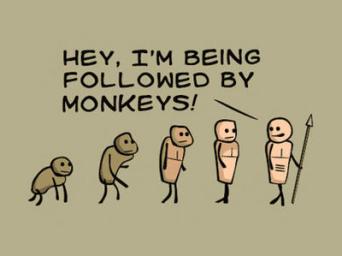When the facts, I change my mind. What do you do, sir?
A criticism often leveled at environmentalists is that they are far too wedded to their own ideological agendas to ever partake in rational debate.
Ignore, for the moment, that such criticisms are usually dripping in hypocrisy. (My experience is that extremists on both side of the aisle not only
deserve each other, but have a remarkable gift for pointing out their own flaws in their opponents.) The unfortunate truth is that such characterisations of blinkered "green" thinking
does hit the mark in many cases. While it's hard to fault someone's sincerity in arguing passionately for the environment, too often reason is thrust aside at the alter of Gaia.
All this points towards why I enjoy reading
George Monbiot. His essays often provoke, but they always make you think. Alongside his ability to construct compelling arguments using detailed lines of evidence, his honesty makes him a rare commodity in the world of "opinion" columnists. He is not scared to challenge power or orthodoxy, but is also prepared to admit when gets something wrong.
Now, I've praised Monbiot along these lines before (e.g.
here). However, he provides some deeper insight into this admirable trait in today's column.
[Background: New data made available by a UK researchers show that resource use (at least in the UK) is diminishing with, and may even be caused by, GDP growth.]
Is the 'peak consumption' hypothesis correct?
I won't deny it: my first reaction on seeing the results of Chris Goodall's research into our use of resources was: "I don't want this to be true." Obviously, I'd like to see our environmental impacts reduced, as swiftly and painlessly as possible. But if his hypothesis is right – that economic growth has been accompanied by a reduction in our consumption of stuff and might even have driven it – this would put me in the wrong. I'm among those who have argued that a decline in our use of resources requires less economic activity, or at least a transition to a steady-state economy.
[snip]
That was what the available research suggested at the time. But if Goodall's findings are correct, they put a coach and horses through something I strongly believed to be true.
So, for a few minutes, I engaged in what psychologists call protective cognition. I started scouring his findings for reasons to reject them. It took an effort of will to shake myself out of it and remember that the intellectually honest response to new information is to adjust our beliefs to the evidence, rather than adjust the evidence to our beliefs. We must question and test new findings of course, but we must do so as dispassionately as possible. Otherwise we are in danger of doing more harm than good, and of wasting our lives promoting the wrong causes. Anti-vaccine campaigners please take note.
Starting again, this time reading it as objectively as I could, I saw that Goodall's report appears to be rigorous and unbiased. It answered many of the questions and objections I raised as I read it. People like me have to step back and consider the possibility that Chris Goodall could be right when he states:
"Absolute decoupling of resource use from economic growth may possibly have occurred … GDP growth, because it brings technological progress which is correlated with more efficient use of resources, may help reduce environmental damage."
[...]
Monbiot does go on to ask some legitimate questions that might challenge the extent to which we can generalise Goodhall's findings. (For instance, by pointing out that declining resource use in the UK is a relatively new phenomenon with much uncertainty over the longer term.) However, the principle is worth repeating: "The intellectually honest response to new information is to adjust our beliefs to the evidence, rather than adjust the evidence to our beliefs."
